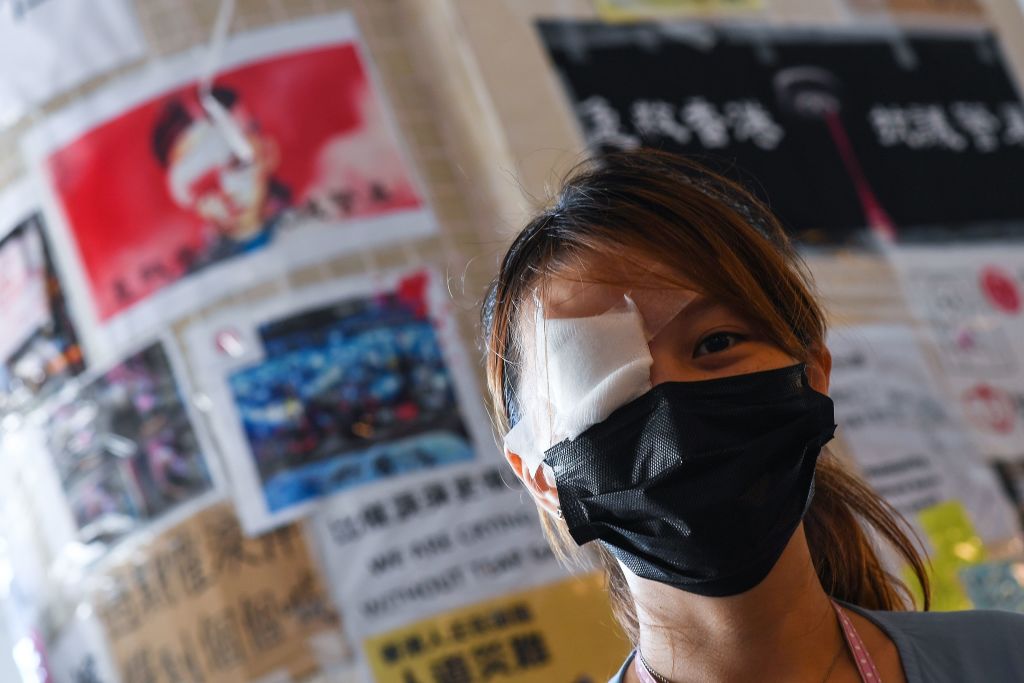August 11th 2019 may go down as Hong Kong’s ‘Bloody Sunday’ as police officers bludgeoned and bruised protesters who had taken to the streets. A young woman was hit in the eye by a rubber bullet. A man was pinned to the ground by police, pleading for mercy as his bloodied face was pushed into the concrete. A policeman shot pepper balls at youngsters from point blank range. Another officer pushed protesters off escalators. Videos also emerged of police officers disguised as protesters making arrests. And there were reports of triad gangsters left free to roam the city, beating up unsuspecting demonstrators.
Hong Kong’s protests started as protests about a single issue, amendments to the city’s extradition law. But ongoing protests reflect a deeper concern: the total collapse of trust in the government and the police force. Hong Kong’s ‘Bloody Sunday’ entrenches this deep rift. Yet still there is little sign that Hong Kong’s government, or its Chinese counterpart, is prepared to listen. As Beijing has ratcheted up its anti-protest propaganda, the response seems to be simply to hit people harder. This is a mistake that is bound to backfire. After all, neither China nor authorities in Hong Kong benefit from making an enemy of the majority of the city’s population.
On Monday, posters went up around Hong Kong with the slogan “an eye for an eye”. This is deeply concerning and an escalation of rhetoric which it would be unwise for the Hong Kong public to pursue. But it is also an expression of the anger which has been bubbling in Hong Kong for a long time. As Beijing and the Hong Kong government condemn what has largely been a peaceful community advocating for the extension of civil political rights as ‘extremists’ or even ‘terrorists’, who Carrie Lam claim have ‘no stake in society’, they threaten to permanently alienate a generation.There are still opportunities to win back trust. The story of the end of the Northern Irish troubles, another context where ‘Bloody Sunday’ violence backfired, shows that even the most intractable conflicts are reparable. But this will be difficult, and it will require concerted meaningful action from both the Hong Kong government, and international allies of freedom and democracy in Hong Kong.
The United Kingdom should work with like-minded governments to make clear that Hong Kong’s special treatment is a result of its unique political system and basic freedoms. Boris Johnson recently said that he was with the Hong Kong people “every step of the way.” The PM could show this by insisting on a human rights clause in any future UK-Hong Kong free trade agreement, and by banning the sale of rioting equipment to the Hong Kong Police Force until an independent inquiry into police brutality has taken place and there is evidence of reforms. The situation in Hong Kong has sufficiently deteriorated that an alliance of concerned governments should take action now.
More importantly, the Hong Kong government could deescalate tensions and restore trust using three concrete steps. First, they must restore trust in the police force: this will only be possible if there is a judge-led independent inquiry into the actions of the police in the last few months. It is not enough for the police to internally investigate their actions: trust in the institution is at rock bottom, and will only be restored if there is an independent investigation.
Second, the government must restore trust in the legal system: the public order laws that have been used to lock up scores of protesters in recent years are outdated and in urgent need of reform. In 2018, after the young political leader Edward Leung was jailed for six years on ‘rioting charges’, Paddy Ashdown described the Public Order Ordinance as ‘one of Britain’s worst legacies in Hong Kong’. He was right. It must be reformed.
Finally, the government must restore trust in the political system. This will require the setting out of a plan for democratic reforms. Hong Kong’s leader is currently elected by an ‘Electoral Committee’ of 1,200 people made up of a disproportionately high number of property tycoons. Parliament – the ‘Legislative Council’ – overwhelmingly favours the business classes through the functional constituency system. This ensures that fifty per cent of the seats are determined by members of professional bodies. For trust to be restored, this rigged system must be reformed.
Benedict Rogers is co-founder and chair of Hong Kong Watch and deputy chair of the Conservative party Human Rights’ Commission. Johnny Patterson is director of Hong Kong Watch






Comments